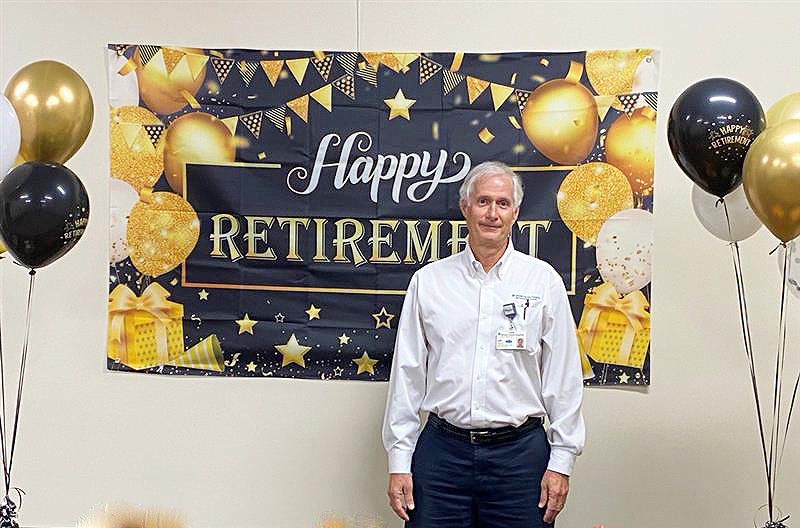WHH Center for Behavioral Health’s Retiring Clinical Director Reflects on 36 Years of Change

After 36 years with Winter Haven Hospital’s Center for Behavioral Health, Clinical Director Jeff Ware, LMHC, is trading the office for retirement. Central Florida Health News spoke with Ware to learn how the community and healthcare needs have changed during his tenure.
“The complexity of psychosocial issues individuals face today has led to an increase in the need for mental health services,” Ware reflects. “Sometimes, a lack of family and positive social connections can leave individuals feeling isolated and alone.”
While the growth of social media has connected people in new and unique ways, it’s presented its own set of challenges and pitfalls. Many users are experiencing higher levels of anxiety. Ware speculates on why this is.
“Constantly being exposed to others who express themselves with significant anger, conspiracies, and general doom and gloom for our world has an effect on one’s mood and outlook in life. Individuals often seek ways to numb themselves from these feelings instead of learning how to cope,” explains Ware. He says that’s led to an increased use of illegal substances, which in turn compound an individual’s mental health difficulties.
Ware says he has noticed a decrease in the stigma attached to seeking care for mental health issues. More positive discussions are taking place on these subjects, even on social media, which in turn is prompting more people to reach out for care and support.
That increased demand is exposing a different problem, Ware says.
“There are not enough behavioral health providers in Polk County to meet the growing volumes requesting services,” he explains. “In addition to people generally native to Central Florida seeking services, the influx of people from other states these last few years who also need mental health services has outpaced our resources.”
Ware and the team at the Center for Behavioral Health have worked to find solutions for people seeking treatment. The wide range of programs available in various settings has created avenues for individuals to receive care in a manner that is comfortable and convenient.
“Community-based programs that offer services in home, schools, and in other venues have proven to be successful,” he says. “Telehealth has also proven to be an effective means to provide needed services for those who, due to poverty, disabilities, and distance, find it difficult to receive services in person.”
COVID had a major impact on many of these advancements. With the entire world struggling with the fear and uncertainty of a global pandemic, it became more acceptable to seek help.
“Seeking help is not as taboo as it was once thought to be,” Ware relates. “In fact, it is becoming clear that it is more courageous to seek assistance than to deny one’s feelings and spiral into despair.”
The COVID pandemic also galvanized the widespread acceptance of telehealth, making it suddenly far more feasible for individuals who desire services but cannot physically travel to an office to connect with mental health care providers.
Ware has seen the Center for Behavioral Health grow from two houses located on the Winter Haven Hospital property to a dedicated building, plus an annex and numerous community-oriented and case management programs. More than 120 Polk County schools and Head Start programs currently benefit from therapeutic interventions on their campuses.
Ware says the biggest takeaway from his time leading the center is how we as humans are united in our need for compassion and care.
“Mental health issues are pervasive and affect all of us equally,” he says. “Some of us are more fortunate than others in being able to access care and have support from others. Nobody born decides to have a lifetime of unhappiness. We must continue to always offer quality compassionate care to all who seek it.”
